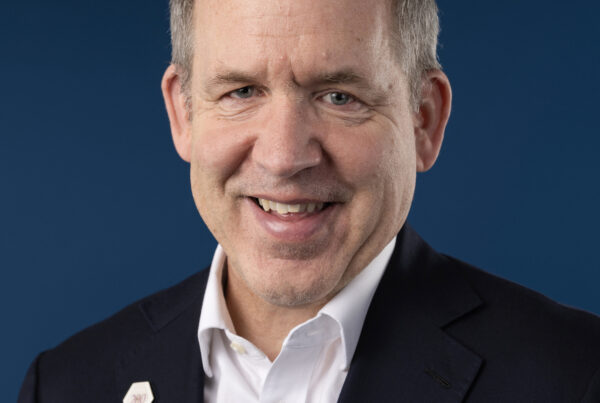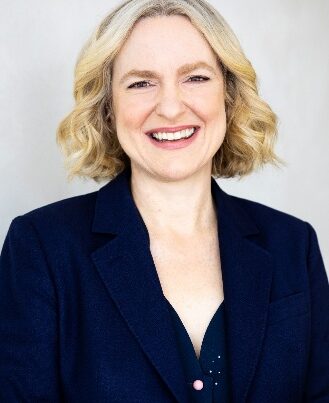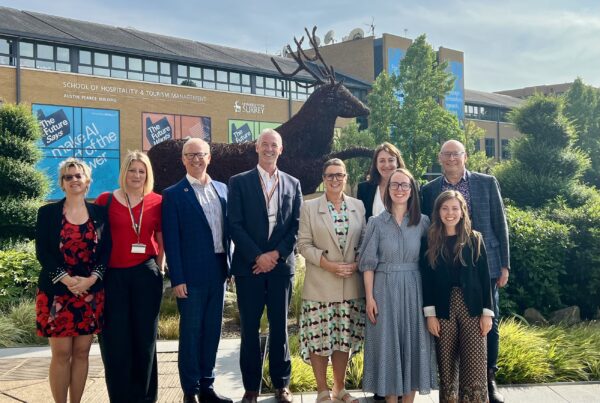How many ideas and exciting bottom-up attempts to do something radical and different in professional education, or using educational technology or pedagogy, or experimenting with admissions practices, have been pulled back by the barriers of a university manual of procedures here, and a regulator’s quality framework there. Isn’t a better measure of design quality how much we innovate and create to engineer something new that is fit for purpose, rather than ensuring what we build is free of risk by being the same as what we have built many times before?
If we are to see genuine innovation and breaking of traditions in higher education it appears likely that it will arise in one of a few scenarios. By a university trying new things in a partnership with EdTech or other out of sector partners maybe? By one, or a group of universities, experimenting outside of normal operations through a start-up venture, perhaps? Or will it be a new market entrant with no corporate memory of ways of doing things, starting from a position of need and purpose, rather than convention and legacy?
TEDI-London is a fascinating example of the second scenario. It was formed and launched out of an alliance between 3 powerhouse universities in the US, UK and Australia. They include Arizona State University, rated the most Innovative US University 7 years running by US News & World Report. It has achieved this against competitors like MIT and Stanford, under the long-term and radical leadership of President Michael Crow.
They include Kings College London, who’s vision includes to define the university of the future, out of a 200-year past. And includes UNSW as one of Australia’s leading and most globally engaged universities. They are three universities trying to push the boundaries of what a university is, in this case through working together in a privatised joint venture.
The challenge for universities trying to differentiate from each other, arise from the constraints of regulations, whichever national system they operate in. In addition, funding models, current market expectations, and sector culture, lead most universities to look the same. In addition, the structures and processes we set up in large universities are also a barrier to innovation and diversity of practice within disciplines and programs.
In the US, history, the scale of the sector and market, and diversity of state contexts, creates some additional diversity. This is evident between major research universities and the system of community colleges in particular. In the UK, the growing requirements of the combination of the Office for Students and the Quality Assurance Agency leaves most of the 160+ players getting on with their conventional ways of doing things. And in Australia, the provider standards, and their implementation by TEQSA, make it very difficult for any university to really differentiate. A rare example in Australia is Torrens University whose CEO Linda Brown, working alongside a Vice Chancellor Alwyn Louw, was recognised as Australia’s most entrepreneurial business leader last week.
But in most global universities, programs of study are inexorably drawn back to one common model. They are governed by a plethora of internal policies and procedures. Even in a new institution, the customs and practices of staff from elsewhere in the sector tend to draw everything back to one way of doing things. For places that one might expect to be highly innovative, there is an argument to say that universities are the most unimaginative, process-bound and conventional of all businesses or institutions.
Developing and following a radical education philosophy, TEDI-London has made a departure from the strategy of each of its founding owners by unbundling research and teaching. It is daring to be different in both its goals and ways of working. All 3 founding partners are treating it as an experiment rather than weighing it down with current KPIs. Each of the three investing universities currently has their own Engineering and Design programs. But they formed an alliance, establishing TEDI-London as a start-up with secured 5-year investment from each partner, then able to operate independently outside of all of their systems, and to be free to experiment with new models of education and learning.
TEDI is a teaching only venture that has no lectures, lecturers or research. It has problem-based learning, and industry partners for student projects that aim for knowledge translation and impact. No-one is measuring TEDI-London staff by conventional research metrics, and no-one cares about its place in the rankings. And student recruitment is based on having the 3A’s of ability, aptitude and attitude validated by interview. No-one cares about its entrants’ A Level, ATAR or SAT scores.
This venture has a mission to address the 50,000 per year shortage of engineers in the UK, and develop engineering capacity in Africa, Asia and the wider developing where we really need them. It aims to attract young learners with passion, and keep them inspired. It is developing their global engineering and design skills in problem solving environments, in industry-engaged maker spacers, on a campus with not a Chancellor or Vice Chancellor portrait to be seen on a wall anywhere. There isn’t even a chancellery.
It is being achieved by a single-minded focus on professional learning, without the distraction of comprehensive disciplines and cross-subsidies, and with its focus on a combination of business outcomes and global impact. The key question of its board is how much can be learnt quickly by three partners trying something new and different, together.
Its first cohort of degree earning students are coming to the end of their first year. This diverse cohort, largely UK based, join a group of over 170 students from London, Sydney and Phoenix, who have experienced this transformative model over three summer schools since 2019. But its scalable future may be to disrupt educational models for the three global investing partners, and replicate it through TEDI for delivery in Mumbai and Mombasa?
It is a novel and bold experiment in new models of engineering and design education that is a pioneering and ground-breaking example of how even our largest, and in some cases most conventional universities, might just try something different. And it was the focus of our conversation together on the HEDx podcast earlier this week that you can access here.
First published in Campus Review on 13th April 2022
Emeritus Professor Martin Betts, Co-founder of HEDx
Judy Raper, CEO and Dean of The Engineering and Design Institute-London









